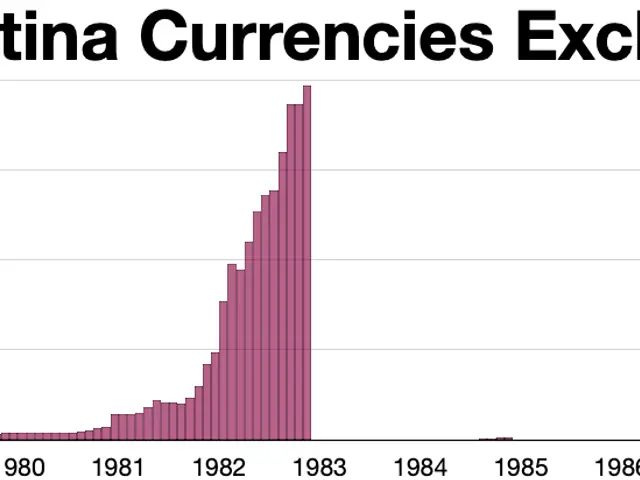Title: Union Financial Offers Apology after Property Fund's Crash: The Real Estate Meltdown Exposed
Hey folks! Let's get straight to the point about Union Financial's recent misstep with the ZBI Immo Wohnen fund.
The ZBI Immo Wohnen fund, managed by Union Investment, has taken a nosedive, leaving many investors scratching their heads. Union Investment has vowed to make things right by recouping the losses by 2026, claiming that "investing in residential property isn't a mistake." But is that really the case?
It's worth noting that DZ Bank, the central bank for the cooperative banking sector and owner of Union Investment, wasn't quite as optimistic. Cornelius Riese, CEO of DZ Bank, called the fund "the right fund at the wrong time." Union Investment reduced the fund's value by 16.7 percent in June, presumably due to overpaying for residential real estate.
But what led to this real estate nightmare? Well, fund managers invested heavily from 2018 to 2022 when prices had already significantly increased. The unexpected escalation in interest rates caught them off guard. Additionally, the vacancy rate stands at a discouraging 7%, with many properties located in less popular areas and being on the older side.
Despite the setbacks, Union Investment CEO Hans Joachim Reinke expressed remorse for the fund's devaluation. He explained the primary factors behind the massive loss in value, despite "no operational issues." He noted the rapid increase in interest rates and the highest inflation since 1949 as the culprits.
Union Investment remains profitable overall, with a net asset value of around 500 billion euros and earnings of 616 million euros in the first half of the year. But the unfortunate collapse of the ZBI fund has raised concerns about the financial health of the cooperative banking sector. Various issues, such as the precarious financial situation of listed agricultural trader Baywa and problematic loans from the VR-Bank Bad Salzungen-Schmalkalden, have made headlines recently.
As investors pull money from the fund, Union Investment must sell properties or find new investors to raise liquidity. The government imposed this regulation to prevent a repeat of the global financial crisis, when investors were unable to withdraw their money for years. Unfortunately, this means that investors must wait a year to get their money back.
Union Investment isn't the only player in the real estate market feeling the heat. Economic downturns, changes in regulations, poor management practices, and negative market sentiment can all contribute to the decline of a real estate investment fund. These challenges could extend the recovery period beyond 2026, require strategic adjustments, and necessitate financial restructuring.
Whew, quite a ride, huh? It's essential to keep an eye on the real estate market and the health of our financial institutions.





![The image shows a formalin/PFA-fixed paraffin-embedded section of an anti-pfa1 antibody [epr22828]...](/en/content/images/size/w640/format/webp/20260226200441_csic-monoclonal-antibody-neutralizes.jpeg)


